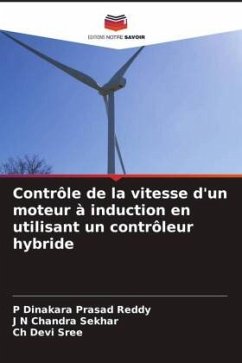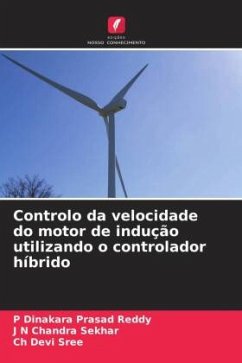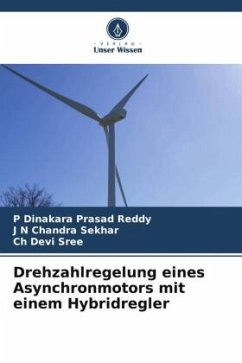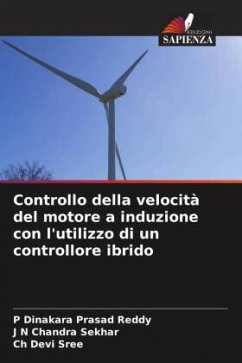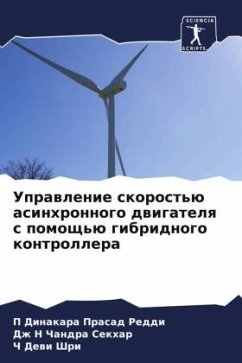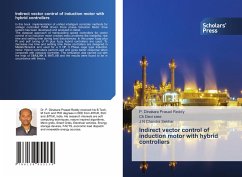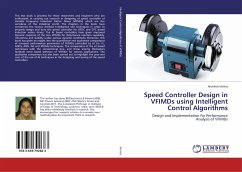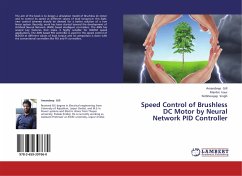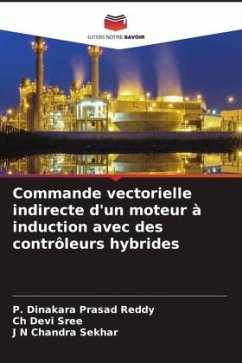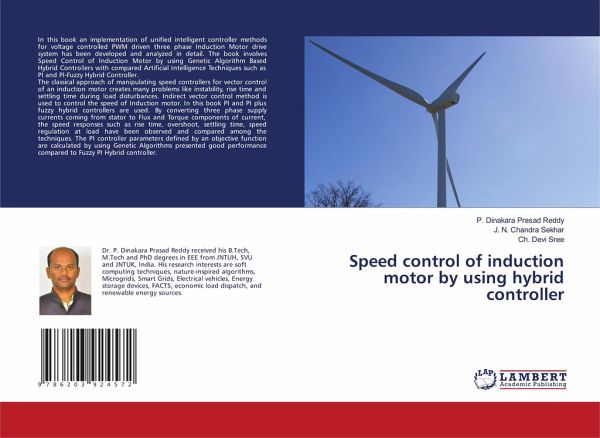
Speed control of induction motor by using hybrid controller
Versandkostenfrei!
Versandfertig in 6-10 Tagen
27,99 €
inkl. MwSt.

PAYBACK Punkte
14 °P sammeln!
In this book an implementation of unified intelligent controller methods for voltage controlled PWM driven three phase Induction Motor drive system has been developed and analyzed in detail. The book involves Speed Control of Induction Motor by using Genetic Algorithm Based Hybrid Controllers with compared Artificial Intelligence Techniques such as PI and PI-Fuzzy Hybrid Controller. The classical approach of manipulating speed controllers for vector control of an induction motor creates many problems like instability, rise time and settling time during load disturbances. Indirect vector contro...
In this book an implementation of unified intelligent controller methods for voltage controlled PWM driven three phase Induction Motor drive system has been developed and analyzed in detail. The book involves Speed Control of Induction Motor by using Genetic Algorithm Based Hybrid Controllers with compared Artificial Intelligence Techniques such as PI and PI-Fuzzy Hybrid Controller. The classical approach of manipulating speed controllers for vector control of an induction motor creates many problems like instability, rise time and settling time during load disturbances. Indirect vector control method is used to control the speed of Induction motor. In this book PI and PI plus fuzzy hybrid controllers are used. By converting three phase supply currents coming from stator to Flux and Torque components of current, the speed responses such as rise time, overshoot, settling time, speed regulation at load have been observed and compared among the techniques. The PI controller parameters defined by an objective function are calculated by using Genetic Algorithms presented good performance compared to Fuzzy PI Hybrid controller.



